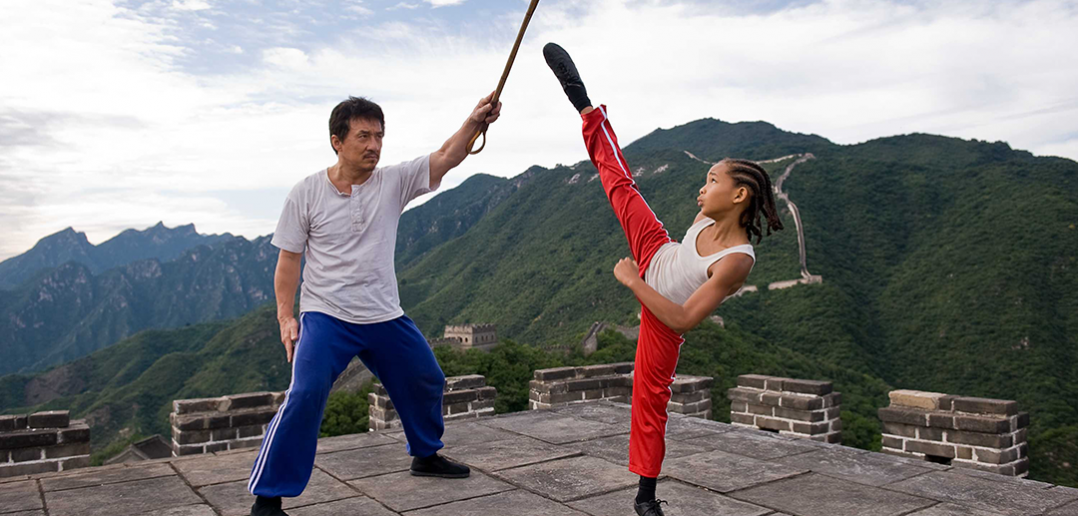China awaits! The Great Wall; steamed dumplings, Shaolin monks and Qingdao beer. Already your mind is racing with wild expectations. However, before you leave home, remember this is a chance to immerse yourself in a strange new culture. This is not just any trip. This is a journey! By Studying Martial Arts you will interact with local communities more deeply than a traveler passing through. The following details 10 mistakes martial arts students make in China and how to avoid them.
10 Mistakes Martial Arts Students Make in China
Whether you experience a culture shock or not, there will be moments when you realize you’re doing something “wrong”. It might be small things like explaining you’re learning to sleep (Shuìjiào) instead of Chinese Wrestling (Shuāijiāo) or raising your glass higher than your elders when toasting. Then of course there are the obvious blunders like behaving like an ass on weekends away from your kung fu school or incessantly bitching about the fact things aren’t the same as they are back home.
China is a country made up of 22 provinces and 56 ethnic minority groups many of which have very different cultures, languages, dialects, customs and peoples. It has a population equivalent to the population of North America, South America, Australia, New Zealand and all of Western Europe combined. Its bigger than an entire continent, so its not surprising that its developed differently to other counties you may be more accustomed to.
Each province and city will have its own speciality that you’ll learn along the way. You’ll make mistakes and discoveries but its all part of learning, but there are some no-no’s that foreigners before you have commonly committed. Learn from their blunders and avoid these common mistakes made by foreign martial arts students who head of to study martial arts in China month after month, year after year.
1. Not making the most of National Holidays and Weekends
In order to make the most of your weekends and time off from training you’ll need to put a plan together. Spending a little time at the local bathing center on the weekend can be a welcome treat allowing the body rest and recuperation. However, there is a distinct difference between the mighty Roman gladiator and spending hours plodding around in the dark like the walking dead.
If you want to sight see or travel, tickets need to be purchased in advance, planning and preparation is the key. As will be your willingness to travel alongside millions of other travelers. Last years golden week saw half a billion Chinese make various trips and journeys. That’s a lot of pot noodles and chicken feet, so don’t underestimate the need to plan ahead. The Travel China Guide has always been very helpful for trip planning and site seeing information. Here you’ll find The Chinese Public Holiday Calendar for 2015-2017.
“Last years golden week saw half a billion Chinese make various trips and journeys”
One of the best things about the school consultation offered through Study Martial Arts is the travel advice and support you can get. It will help you get the most out of sight seeing opportunities both near and far. Plus its all good stuff and FREE for SMA members and those who have booked their experience through StudyMartialArts.Org.
2. Assuming You Can’t Get By on the Basics
Does everyone speak English? No. Do a lot? Yes. The number of English language learners in China has risen over the past decade. In tourist areas and capitals, its easier to find English speakers, but you shouldn’t expect it. Being open friendly, smiling, and using gestures as well as interesting ways to get your message across in a friendly way will do wonders for you. When I first arrived in China many of my friends who had much more experience speaking the language than me would be amazed at how well I would do with the most basic of Chinese. The only difference was my playful disposition and imagination. 9 out of 10 times I would not only get what I wanted but often get much more in return. This ranged from free lifts, meals, KTV invites and of course lasting friendships. Treat English like a welcome surprise, if you find it be happy, but if you don’t remember there was no promise it would be given to you anyway. Remember not to make your martial arts adventure in China a duplicate of your life in Europe or the USA etc.
At the sometime don’t assume no one speaks English either. There are approximately 400 million English learners in China so it shouldn’t be used as a language to insult people stealthily. English comprehension is often much higher than speaking ability due to shyness and how the language is taught.
If you want to get a head start on your language learning the SMA Welcome pack offers students who book through StudyMartialArts.Org $400 usd worth of language learning and martial arts materials pre-trip all at no cost!
3. Drinking the Wrong Way
You owe it to yourself not to be the drunken foreigner and more importantly the wrong type of drunken foreigner and let yourself down. Remember the purpose of your journey. Heavy drinking won’t help you reach your aims and objectives and may cause you, your hosts or school and Shifu to loose face (embarrassment).
Drinking in China and smoking is common place. With cheap alcohol and cigarettes everywhere, this is not the best place to run away to if you want to change these bad habits. This must start at home.
Most social drinking in China is primarily associated with eating. Most drinking takes place around the dinner table and meals as a way to cement relationships and do business. As a topic this subject could easily have its own blog entry but that will be a story for another day.
Here are my top 5 tips for surviving drinking in China in brief
1. Showing respect when drinking is probably one of the first things someone will explain to you. When drinking tea or when drinking alcohol with a superior clink your cup/glass lower. Its super simple and easy to remember. But its much appreciated by your elders, fellow guests, shifu’s. The rest of the customs and rules need not be learnt straight away and are things you’ll pick up on or learn as you go. As a foreigner you’ll not be expected to know them or everything.
2. When inviting or being invited out for dinner or meals in China. The standard rule of thumb is usually the inviter pays unless stated otherwise.
3. When drinking follow the lead of others at the table in terms of speed quantity and times. Whatever you do avoid mixing baijiu and beer. You should remember drinking in China can start very slowly but once the individual toasting starts it can be rapid and all those small cups will start catching up on you especially if you’ve insisted on drinking out of turn.
4. If you don’t want to drink have an excuse prepared in advance or warn your host of this. Excuses related to health tend to be the best. Having tried many over the years these where best received by hosts and guests. If you’re not going to be drinking much but still want to show respect have tea ready in your cup and don’t empty the cup (ganbie) just drink as you wish (suiyi).
5. Eat, eat and eat. Show appreciation and be a good guest.
4. Failing to Address People Properly
In China much of how you address or interact with someone will depend on your relationship to that person. Just like the rituals associated with drinking and food, failing to address people properly can be a hinderance to building good relationships, gaining favor or simply getting the information you desire. The physiological fact is that when you start calling people auntie, uncle, brother or sister you should in most cases have the inclination to treating each other better and like family. This is good news if you join a good kung fu family.
Here are the most common ways to address people that are not directly related to blood relationships and can be applied generally.
Auntie (阿姨 a-yi) given to any woman around the age of your own mother.
Uncle (叔叔 shush) given to any man around the age of your own father.
Big brother ( 大哥 da-ge) given to any male older than you.
Little brother ( 弟弟 di-di) given to any male younger than you.
Big sister (大姐 da-jie) given to any female older than you.
Little sister (小妹 xiao-mei/妹妹mei-mei) given to any female younger than you.
Grandma (老奶奶 lao- nainai/老婆婆lao-popo) given to any female around the age of your own grandmother.
Grandpa (老爷爷lao-yeye/ 老公公lao-gonggong) given to any male around the age of your own grandpa
Teacher
| 老師 | 老师 | lǎoshī | Teacher | “Laoshi” may sometimes be used as a polite reference to a more highly educated person, who may not necessarily be a teacher. |
Master
| 師父 | 师父 | shīfù | Master | See Sifu for further information. |
| 師傅 (skilled worker) | 师 傅 | shīfù | Master | See Sifu for further information. |
Driver (司机si ji) General term for a taxi or bus driver.
Buddy (哥们儿ge men er) A term used between men when being friendly
Beautiful girl (美女mei nv) Often used when addressing young women who work in the service industry.
Mr (先生xian sheng)
Ms (小姐xiao jie)
Mrs (女士nv shi)
Thankfully the general terms above is likely to more than enough to help you get by day to day. If however, you’d like to learn more you can watch this short video highlighting the staggering amount of different words for family members in China.
5. Not Making the Most out of China’s Vast Bus & Train Network
China has an abundance of travel options for the intrepid martial arts traveller. From low budget airfares to high speed trains, bus services and slow trains.
Elong and Ctrip are two of the best airline ticketing companies in China. Both companies handle domestic and international flights and their websites are easy to use. Often it’s going to be worth comparing domestic flight prices with high speed train tickets as they are pretty competitive in comparison to the high speed trains. The cheapest way to travel is normally by long distant bus and depending on the journey can often be faster than long distant trains.
“If you want to buy a ticket travel or book into a hotel you’ll need your passport.”
If you do choose to travel by train you can easily pick up tickets from one of the many ticket offices near stations or dotted around cities. Simply search online for information and go prepared with train numbers, dates and useful phrases.
Traveling overnight by train can be both fun and enjoyable. If you’ve got money to spend go for the soft sleeper. Soft sleepers are (4 birth cabins) and idea in a group of 4. If their are non available or you are on a budget then the hard sleeper will do (6 birth cabin).
Seated or standing options for long journeys is something you’ll want to avoid. It will be an experience but it usually doesn’t make for a fun journey. If you’ve no other choice and there are no tickets left you can often ask to be upgraded. So use your relationship building skills with the conductors and service staff to gain favor.
As an alternative when no seats are available the dinning car can offer some welcome rest, however you will be obliged to buy overpriced food and drink throughout the journey if you wish to remain in the seat.
The last option of course is to bring your own stool and tea flask like the seasoned local traveler you are becoming. NOTE: Definitely bring your tea and flask.
For both trains and buses you should plan to be at the stations 30-40 minutes before they leave. With stations being so big , walking time, confusion and queues mean you’re likely to miss the train if you cut it too fine. Most importantly, if you want to buy a ticket travel or book into a hotel you’ll need your passport.
Here’s a more in-depth article on all you need to know about buying and using train and bus tickets in China.
6. Not Making the Most out of the Cheap Internal Flights
China has two great, reliable budget air travel companies. These are Ctrip and elong. Both have English website versions and don’t charge foreigner site users more for flight purchases. The only downside is that they no-longer offer their cash and delivery service, purchases must now be made by credit card.
So plan your internal flights ahead of time. Check for deals and book well in advance of Chinese holidays. If you follow these rules it could be that flying will be very competitive in comparison to purchasing train tickets when you consider the potential time you might lose during transit, money spent while traveling and of course the convenience of plane travel.
7. Clinging to Western Comforts and Society as well as Westerners themselves and Not Embracing your New Found Freedom
Martial arts students in China have a much wider range of opportunity than tourists. You not only have a real chance to experience another culture. You have a chance to leave any previous cultural trappings and personal baggage behind you and start afresh. Affectively, you can drop out of both western and the modern Chinese rat race and return to a simpler way of life without the negative influences of celebrity, trash tv, news or politics. After all you are paying for the opportunity to live a unique way of life and train. Don’t waste that opportunity by hanging out every rest period online or by spending time with westerners who are a negative influence, simply because they are western and familiar.
Tourists come to China to see the sites, but you are a martial arts student. You have specifically come to learn kung fu in China! You have signed up to experience a way of life that allows you the space and time to train martial arts day in day out. One of the side benefits of this training is that you will be able to find the space and time to breath literally and metaphorically. You can’t do this if you seek every trapping and convenience from the West that you left behind.
Studying martial arts in China offers you a much wider range of opportunity than many other potential activity. You can discover not only the real China but more importantly the real you. Don’t waste this by clinging to familiar crutches.
“StudyMartialArts.Org will even pay their SMA students for articles.”
Whether your reasons for coming to China have been to study martial arts or simply for travel and adventure. The fact you decided to become a martial arts student changed all that. Your focus for the time you are at the school should be mastery and reaching new levels of skill, whatever they maybe. This is the reason you became a student, not making training your priority defeats the purpose and is annoying to the students who are doing just that. Your behavior has the potential to be either positive or negative. Students with a lack of discipline or demonstrating a lack of effort aren’t likely to be warmly welcomed. So if you’re not truly dedicated get ready to get the cold shoulder from the long-term students in your class. Skill level is not as important as attitude.
In short
1. Focus on your training nothing else matters. It’s your priority now, so train hard and be honest with yourself.
2. Drop negative influences and old crutches.
3. Don’t spend longer than you have to on Facebook or social networks. Keep it to an hour or two max and at the weekend.
4. Leave news, politics, opinions and celebrity to others. Drop all negative influences and only keep what is essential.
5. Pick up a good book, you know the ones you’ve been planning to read and never have. Begin studying and focus on your own mind, body and spirit.
6. If you feel inspired write and journal your progress. This will allow you to keep track of your progress and your discoveries. If what you’re writing is good and you have a story to tell www.StudyMartialArts.Org will even pay their SMA students for articles!
8. Not Practicing Your Foreign Language Skills
Maybe part of the experience for you is learning the language. You’ve spent months in preparation using the free language learning resources from SMA or you’re taking classes for Studying Chinese and preparation to actually use it, but now you hear it everywhere you’re too intimidated to use it. The biggest mistake would be letting all the work go to waste because you’re shy. Another big mistake would be thinking that the Chinese language classes at the kung fu schools will be of any real help. Usually, these classes offer a token introduction and are not structured. The quality is generally low and is interrupted by new arrivals. My advice is to make the most out of the SMA language resources. SMA provides language learning materials for our students that actually work. Some are free and some we will order in advance of your arrival at the school. Which means that when you arrive you will have a HKS (Official Hanban language learning materials). These include a text book, workbook and accompanying audio CD’s. Here is the StudyMartialArts.Org list of Kung fu Schools and Universities in China that actually can provide students a quality martial arts and Chinese language learning experience.
If you’re in a country where the language interests you, you are in the most ideal classroom and take full advantage of it. Whether it feels scary or not, take every opportunity to practice. Here are 5 Hacks for Learning a Language Abroad, even eavesdropping on stranger’s conversations is an opportunity to learn something new and test your language skills!
9. Forgetting the RMB has a Value
Sound strange? Think again. As a previous long term martial arts student and now resident I have to admit I get tired of having to haggle. However, this is unavoidable, therefore it’s important to know the value of your money and what things cost not in comparison to your respective country but in terms of the cost in China. When fresh faced martial arts students arrive at a kung fu school your first job when outside the school will be paying for things and learning the subtleties of a good haggle. If you’ve got the right attitude your fellow kung fu brothers and sisters at the school will help keep you right.
Foreigners in China getting ripped off or paying over the odds for things is not a new phoneme. Don’t reenforce that through ignorance or lack of care, after all you may have lots of money or might only be there for a short time but others at the school will be there for longer and on budgets. Don’t make that harder for them by allowing yourself to be taken for a ride or paying silly prices for essential items in and around the school.
10. Handing Over Responsibility for Your Own Learning
Ultimately you must be mature enough to take responsibility for your own learning, development and progression. Yes you are paying tuition and you will be taught, however without hard work (kung fu) you will get little in return. The most important aspects of any martial art training is in the development of the foundation. The bitter pill of training, overcoming pain, repetition and boredom through persistence. This is up to you and can’t be put on anyone else.
“The most important aspect of any martial arts training is in the development of the foundation”.
If you’ve decided to study martial arts in China, you will make a few mistakes. Don’t let this scare you off though. Instead, remember you chose this journey for a reason, and make sure to take full advantage of the opportunities. Immerse yourself in your study and the experience and grow with each mistake.
When you do mess up, you might not know why right away, so ask your martial brothers and sisters, locals or friends and when you look back, you’ll probably laugh when you remember the wrong things you said or did!
It’s not about how many times you fall its about how many times you dust yourself off and pick yourself up!







